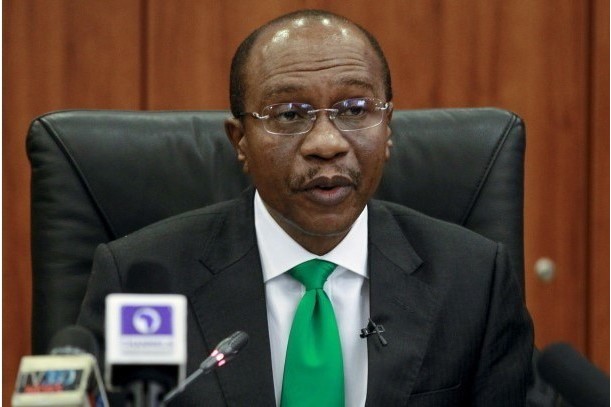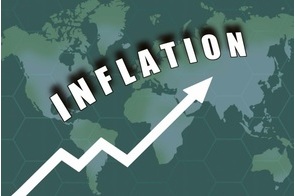Latest News
Nigeria’s economic outlook is challenging under current policies – IMF

News Highlight
According to the IMF mission lead, Nigeria’s economic recovery will start in 2021, with subdued growth of 1½ per cent.
Nigeria’s real GDP is contracting, inflation is increasing, and external vulnerabilities remain large. These and other submissions were contained in the statement released today by the International Monetary Fund (IMF) at the end of its mission to Nigeria for consultation with the country’s policymakers between October 30 and November 17.
Jesmin Rahman, IMF's Mission Chief and Senior Resident Representative for Nigeria, said in the statement that the country was already experiencing falling per capita income and double-digit inflation, with limited buffers and structural bottlenecks, before the COVID-19 pandemic began to exert a heavy toll on the economy since the second quarter of the year.
Official data by Nigeria’s National Bureau of Statistics (NBS) show the economy contracted by 6.10 per cent in Q2 and 3.62 per cent in Q3, and is, therefore, in its worst recession in over three decades. The new statement by the IMF projects the Nigerian economy to contract by 3¼ per cent in 2020.
According to the statement, low oil prices and sharp capital outflows have significantly increased the country’s balance of payments (BOP) pressures and, together with the pandemic-related lockdown, have led to a large output contraction and increased unemployment. Supply shortages have pushed up headline inflation to a 30-month high.
“Under current policies, the outlook is challenging,” said Ms. Rahman in the IMF statement. She advised exchange rate and monetary policy reforms, increased revenue mobilization and structural reforms to help unlock Nigeria’s growth potential.
According to the IMF mission lead, Nigeria’s economic recovery will start in 2021, with subdued growth of 1½ per cent. Output recovery is projected to reach the pre-pandemic level only in 2022.
Also, the country’s inflation is expected to remain in double-digits, above the Central Bank of Nigeria (CBN)’s target range, despite likely easing of food prices. This would only be averted with monetary policy reforms, said Ms. Rahman.
In 2019, the year before the pandemic, Nigeria’s GDP grew by 2.2 per cent, according to data by the World Bank. Headline inflation increased to 14.23 per cent year-on-year in October 2020, according to the NBS. The consumer price index has been rising since February 2018.
“Following a significant decline in revenue collections — from levels that were already among the lowest in the world — fiscal deficits are projected to remain elevated in the medium term,” said the IMF mission lead, highlighting the fiscal constraints the government also faces. “There are significant downside risks to this near-term outlook arising from the uncertain course of the pandemic both globally and in Nigeria.”
However, the statement praised some of the measures the Nigerian authorities have undertaken as commendable and timely to counter the pandemic’s impact on lives and livelihoods. The Federal Government adopted a revised budget in July, which prioritized spending on a support package. The CBN also reduced the interest rate for its intervention facilities from 9 per cent to 5 per cent and introduced regulatory forbearance measures to ease debt service in affected sectors.
In what the Nigerian populace would not find amusing, though, the statement praised policies taken by the government that were consistent with the controversial policy advice of the IMF. In March, the government said it had removed subsidy on petrol. A few months later, still during the pandemic, the tariffs on grid-electricity were increased. IMF has long argued that the subsidies were costly and untargeted, largely benefiting better-off households.
But the IMF said more needed to be done. It canvassed major policy adjustments of embracing broad market and exchange rate reforms to address recurrent BOP pressures and raise the medium-term growth path.
“A durable solution to Nigeria’s recurrent BOP problems requires recalibrating exchange rate policies to reduce BOP risks, instill market confidence and facilitate private sector planning,” Ms. Rahman said. “The adjustments in the official exchange rate made earlier this year are steps in the right direction and the mission recommended a multi-step transition to a more unified exchange rate regime, with a market-based, flexible exchange rate.”
On the fiscal side, she advised on aggressive revenue mobilization drive to create space for higher social spending and reduce fiscal risks and debt vulnerabilities. Revenue mobilization, she said, will need to rely initially on progressive and efficiency-enhancing measures, given the high poverty rates in the country and because of a gradual recovery in prospect. Increase in Value Added Tax (VAT) should wait until stronger economic recovery takes root.
The IMF chief also advised complete withdrawal of CBN financing for the budget over the medium term, with efforts focused on improving budget planning and public finance management practices to allow for flexible financing from domestic markets and better integration of cash and debt management.
On interest rate, Ms. Rahman expressed agreement with the CBN that its accommodative monetary stance remains appropriate in the near term given the constrained fiscal space, large fiscal financing needs and strained sovereign external market access. But, if BOP and inflationary pressures intensify, there might be a need to withdraw liquidity or raise rates. Given weak transmission and record low market interest rates, further cuts in the Monetary Policy Rate are unlikely to provide additional support to the economy, she said, adding that in the medium term, the operational monetary policy framework, along with policy strategy and communication, should be strengthened to establish the primacy of price stability.
The statement of the IMF mission noted that the banking sector has been resilient, because of the ample pre-crisis buffers. It, however, recommended vigilance and corrective actions to prevent an increase in financial stability risks arising inter alia from increasing non-performing loans. In this connection, debt relief measures for clients should remain time-bound and limited to clients with good pre-crisis fundamentals, in line with existing regulations.
The statement continues: “The minimum loan to deposit ratio should be reconsidered because of the risk to financial stability associated with pushing credit possibly to higher-risk clients. Regarding financial inclusion, the mission welcomed notable progress in narrowing gender and regional gaps in access to financial services, including through fostering financial literacy, agency banking and use of fintech.”
Finally, and on the structural front, the IMF chief said approval of the power sector recovery programme financing plan, the ratification of the African Continental Free Trade Area (AfCFTA), and the completion of key road projects are positive steps. Going forward, the mission recommended decisive actions to tackle governance weaknesses and implement regulatory and trade-enabling reforms, including the lifting of trade restrictions, to unlock Nigeria’s strong growth potential. It said it is critical to continue strengthening the anti-corruption framework and implement plans to improve the effectiveness of the AML/CFT framework.
IMF says the views expressed by its mission staff at the end of their policy consultations do not necessarily represent the views of the IMF’s Executive Board. The meeting with the Nigerian authorities held virtually, in the context of social distancing measures for the control of the COVID-19 pandemic.
Related News
Latest Blogs
- The Museum of West African Art saga
- The complexity and complication of Nigeria’s insecurity
- Between bold is wise and wise is bold
- Prospects of port community system in Nigeria’s maritime sector
- Constitutionalism must anchor discipline in Nigerian Armed Forces
Most Popular News
- NDIC pledges support towards financial system stability
- Artificial intelligence can help to reduce youth unemployment in Africa – ...
- Africa needs €240 billion in factoring volumes for SME-led transformation
- ChatGPT is now the most-downloaded app – report
- Green economy to surpass $7 trillion in annual value by 2030 – WEF
- Global trade to hit record $35 trillion despite slowing momentum






